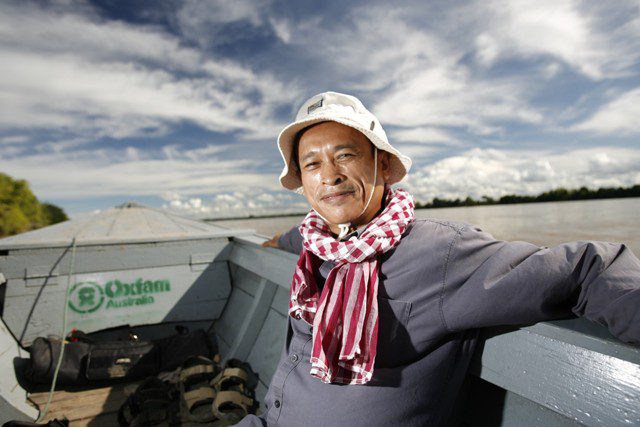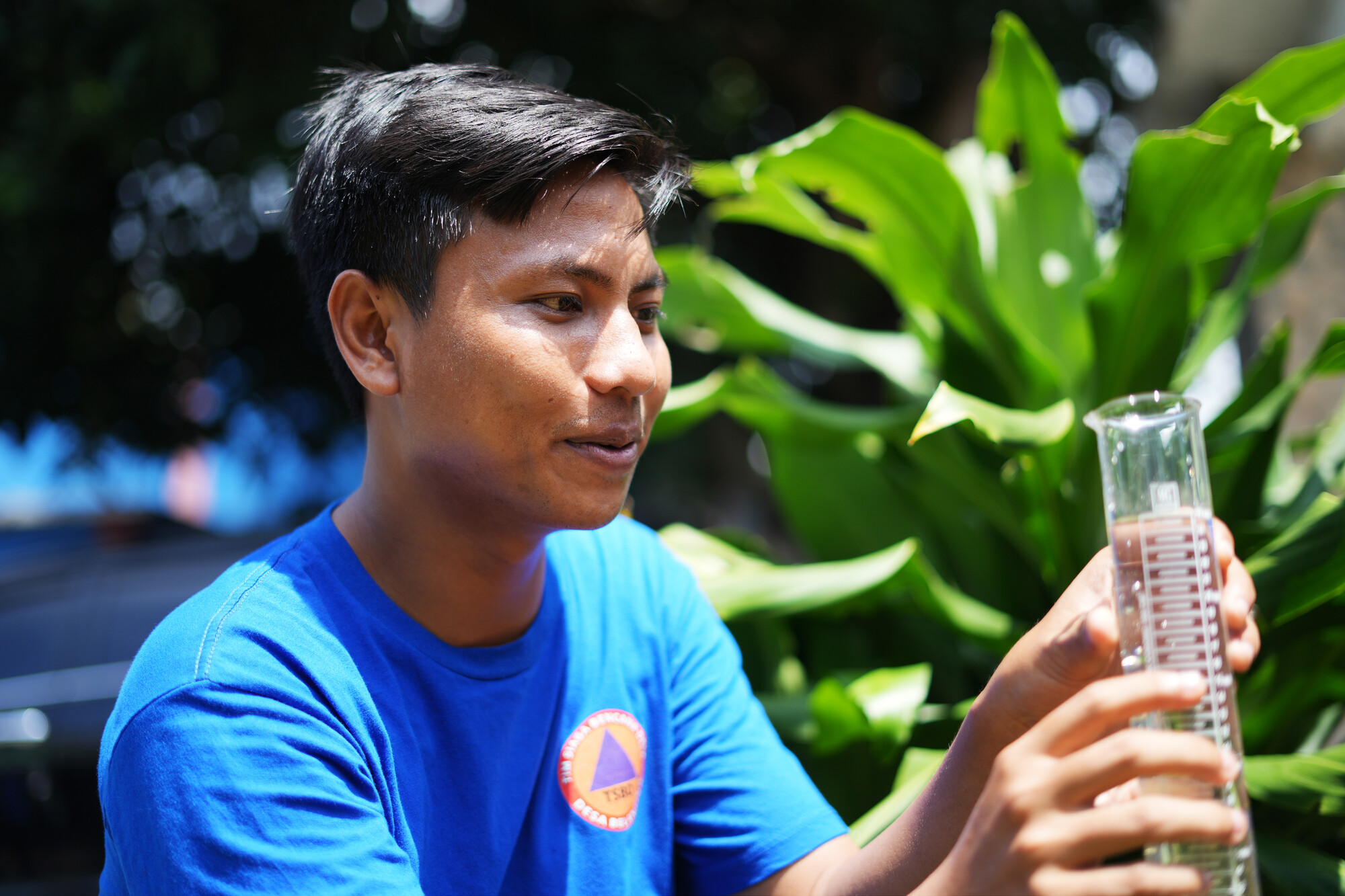The first thing that my supervisor did when I got back from my field trip last week was to place a two‑page document in my hands. ‘Take a close look at this’ he said smirking, and left.
It was entitled Key consideration: food and nutrition security vulnerability to mainstream hydropower dam development in Cambodia. It summarised the potential impact of the Mekong dams on the fisheries and people in the region. Nothing new, I thought. So where was the catch? I had read several Oxfam reports on the topic and this one didn’t seem much different.
Then I saw it. At the bottom, printed in small letters: ‘Fisheries Administration’. It wasn’t an Oxfam document; it was a Cambodian Government one.
The Cambodian Government is a strong supporter of the construction of dams and has kept a relatively low profile on the issues related to it, avoiding commenting on the pressure coming from the dams’ critics. And now this: a full engagement.
The document is surprising, first because it admits that Mekong fish is a critical source of food for the Cambodian population and that it has an immense economic value for the nation (over a US$1 billion per year). And secondly, because it recognises that dams would significantly reduce the supply of fish, consequently having ‘a strong detrimental impact on the rural population living in the plains’.
It even timidly suggests that there is not much to do to minimise or replace the losses that would result from the dams and preaches caution. The document concludes with a list of recommendations that call for conducting more scientific studies before constructing the dams and welcomes further collaboration with development partners. But why would all this make any difference? Didn’t we already know all this?
By publishing this document, the government has endorsed the results of it. It will be harder now to pretend to ignore the issue. And if it does, Oxfam and any other critic will have a stronger advocacy instrument: the government’s own study.
This document can and will be used as a baseline to compare and monitor the impacts of dams. But the real success of this publication lies in the way it was produced. Although the document is published by the government, the work behind it comes from collaboration between the government, Oxfam, WWF, and Danida.
In facing the regional government, we took a soft approach this time, working with instead of against. And it is turning out to be working well. With this report and this collaboration, Oxfam has set an example that can be used to involve all the other governments of the region.
Although this document represents a clear step forward, we should also avoid the risk of being overly optimistic and letting our guard down. The Cambodian Government has a tendency to release promising statements while continuing their practices undisturbed. This time, however, it should be different.
This document is accurate and detailed, and it comes from a long collaborative process, which seems to indicate that the Cambodian department of fisheries is truly invested in safeguarding the Mekong.
There will still be a battle over these dams, but some government departments are not an enemy anymore.
Written by guest blogger Robin Narciso
Take action now to call for a 10-year moratorium on any dams along the Mekong.



